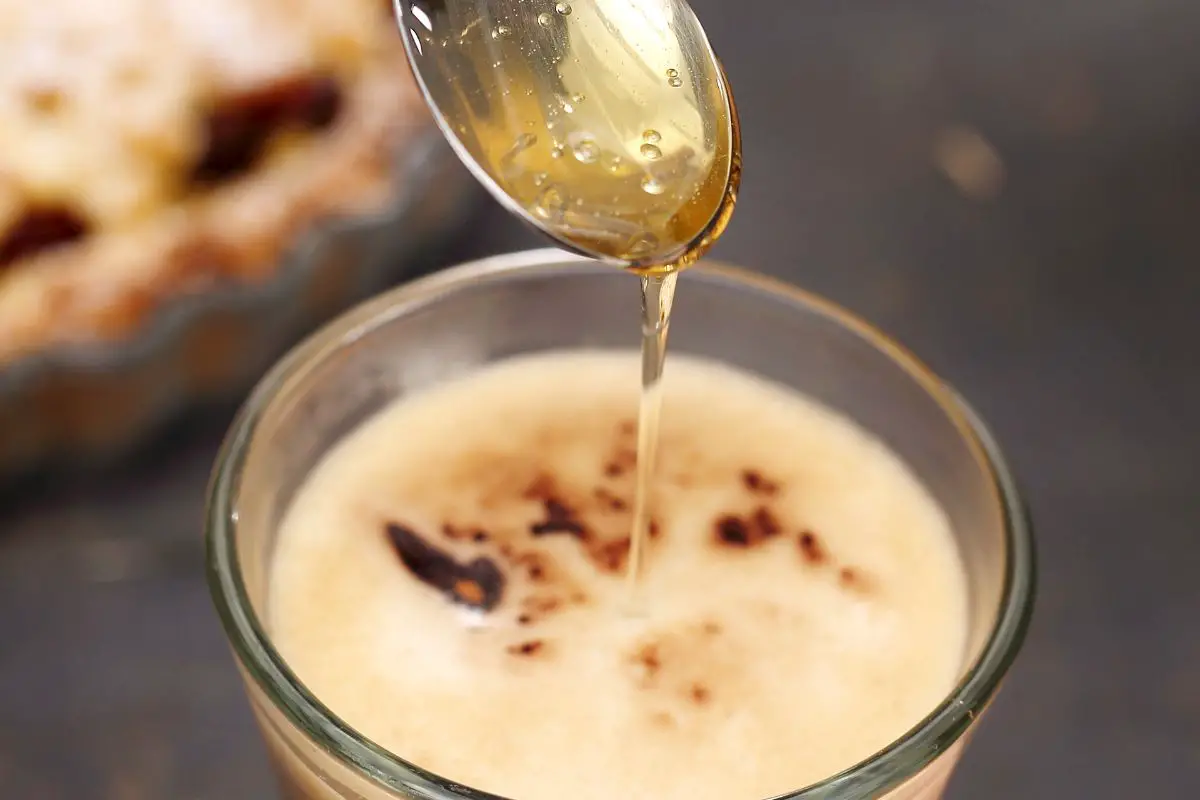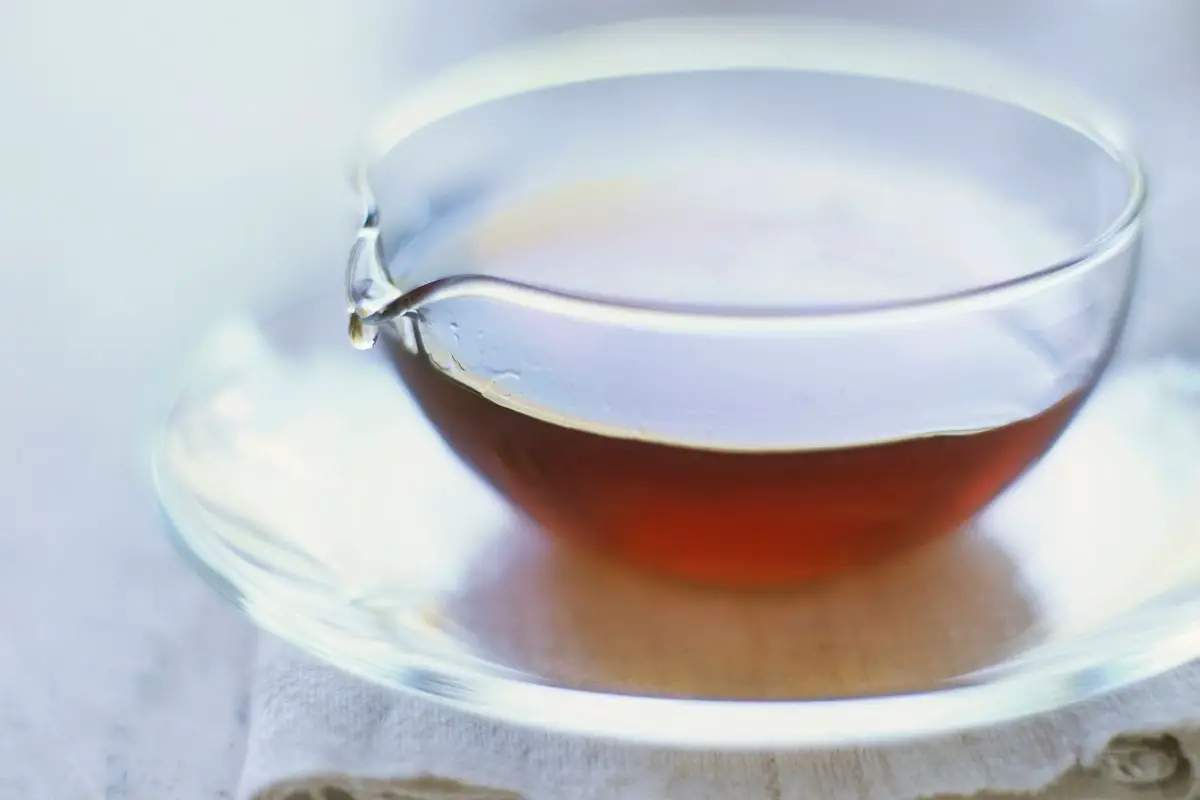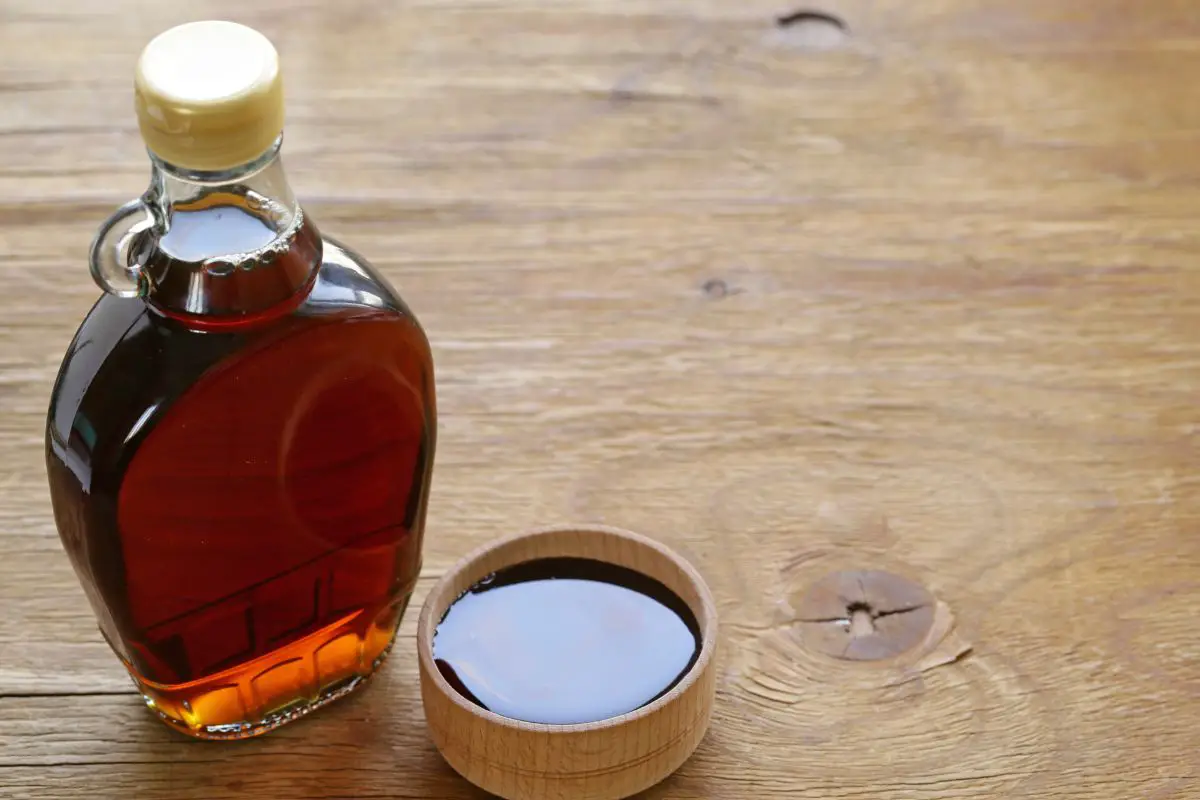In the pursuit of a healthier lifestyle, many individuals seek alternatives to sugar in their daily coffee consumption. The excessive intake of sugar has been linked to various health concerns, including obesity, diabetes, and cardiovascular diseases. As such, finding suitable substitutes for sugar becomes crucial for those looking to reduce their sugar intake without compromising taste.

This article aims to explore a range of options available as substitutes for sugar in coffee, providing a comprehensive overview of both natural and artificial alternatives. By understanding the potential benefits and drawbacks of each option, readers can make informed choices that align with their personal preferences and dietary needs.
From natural sweeteners like stevia, honey, agave nectar, maple syrup, and coconut sugar to zero-calorie artificial sweeteners, this article will present a variety of options to accommodate different taste preferences and health goals.
Whether seeking a zero-calorie option or a low-glycemic alternative, this article will equip readers with the necessary knowledge to make a safe and informed choice when sweetening their morning brew.
Key Takeaways
- Natural substitutes for sugar in coffee include stevia, honey, agave nectar, maple syrup, and coconut sugar.
- These natural substitutes offer a range of flavors and have lower glycemic indexes compared to sugar.
- Artificial sweeteners like stevia and neotame provide zero-calorie alternatives to sugar and have no known health risks.
- It is important to consume all sweeteners in moderation and consult with a healthcare professional when using artificial sweeteners.
Stevia: A Natural Zero-Calorie Sweetener
Stevia, a plant-derived sweetener with zero calories, offers a natural alternative to sugar in coffee, catering to individuals seeking to reduce their caloric intake while still enjoying a sweet taste.
Stevia is extracted from the leaves of the Stevia rebaudiana plant, which is native to South America. It has been used for centuries by indigenous populations as a sweetening agent.
One of the key advantages of stevia is its zero-calorie content, making it an appealing option for those looking to manage their weight or reduce their sugar consumption. Additionally, stevia is known for its high sweetness intensity, which means that only a small amount is needed to achieve the desired level of sweetness. This makes it a cost-effective option in the long run.
Furthermore, stevia is considered safe for consumption by various regulatory authorities, including the U.S. Food and Drug Administration (FDA). It has undergone extensive scientific research to assess its safety and has been found to have no adverse effects on blood glucose levels or insulin response, making it suitable for individuals with diabetes.
Transitioning to the subsequent section about honey, another natural and flavorful option, it is important to note that while stevia offers a calorie-free alternative, honey provides a different taste profile and potential health benefits. Therefore, individuals seeking a more distinct flavor can consider honey as an alternative to sugar in their coffee.
Honey: A Natural and Flavorful Option

Honey, a natural and flavorful sweetener, offers a rich and distinctive taste that can enhance the flavor profile of coffee.
It also possesses antioxidant and antibacterial properties, making it a potentially healthier alternative to sugar.
However, it is important to note that honey has a higher calorie content compared to stevia or other zero-calorie sweeteners.
Rich and Distinctive Taste
To enhance the flavor profile of coffee without the use of traditional sweeteners, alternative options such as agave syrup or maple syrup can be considered, adding a rich and distinctive taste to each sip. These natural sweeteners provide a delicious and unique flavor that complements the bitterness of coffee. Agave syrup, derived from the agave plant, has a mild and caramel-like taste, while maple syrup offers a robust and earthy flavor. Both options are known for their natural sweetness and can be used as a substitute for sugar without sacrificing taste. Additionally, agave syrup and maple syrup have lower glycemic indexes compared to refined sugar, making them a safer choice for individuals concerned about blood sugar levels. Transitioning into the subsequent section about “antioxidant and antibacterial properties,” these natural sweeteners also offer additional health benefits.
Antioxidant and Antibacterial Properties
Maple syrup and agave syrup offer more than just sweetness; their antioxidant and antibacterial properties provide an unexpected boost to overall health.
Maple syrup contains various antioxidants, such as phenolic compounds and vitamins, which help protect the body against free radicals and oxidative stress. These antioxidants have been linked to a reduced risk of chronic diseases, including heart disease and certain types of cancer.
Agave syrup, on the other hand, contains fructans, which act as prebiotics and promote the growth of beneficial gut bacteria.
Additionally, both maple syrup and agave syrup have natural antibacterial properties that can help combat harmful bacteria in the body.
However, it is important to note that maple syrup and agave syrup have a higher calorie content compared to sugar, which should be taken into consideration for those watching their caloric intake.
Higher Calorie Content
Agave syrup and maple syrup, although known for their antioxidant and antibacterial properties, should be consumed in moderation due to their higher calorie content compared to other sweeteners. Agave syrup contains approximately 60 calories per tablespoon, while maple syrup contains around 52 calories per tablespoon. These higher calorie contents can contribute to weight gain if consumed excessively. It is important to be mindful of portion sizes when using these sweeteners as substitutes for sugar in coffee. To provide a better understanding of the calorie content, below is a table comparing the calorie content of agave syrup and maple syrup with other common sweeteners:
| Sweetener | Calories per tablespoon |
|---|---|
| Agave Syrup | 60 |
| Maple Syrup | 52 |
| Honey | 64 |
| Stevia | 0 |
| Artificial | 0 |
Considering the higher calorie content of agave syrup and maple syrup, it is advisable to use them in moderation to maintain a healthy diet. Transitioning to the next section discussing agave nectar as a low-glycemic sweetener, it is important to explore alternative options that are both nutritious and safe for consumption.
Agave Nectar: A Low-Glycemic Sweetener

Agave nectar is a low-glycemic sweetener that offers a mild and neutral flavor.
It is a suitable option for diabetics as it does not cause a rapid spike in blood sugar levels.
However, it is important to note that agave nectar has a high fructose content, which may pose potential health risks if consumed in excess.
Mild and Neutral Flavor
Stevia, a natural sweetener derived from the leaves of the Stevia rebaudiana plant, offers a mild and neutral flavor that can be used as a substitute for sugar in coffee. This sweetener provides an alternative to those who desire to reduce their sugar intake without sacrificing taste.
Stevia contains zero calories and has a low glycemic index, making it suitable for individuals who are watching their weight or managing their blood sugar levels. Additionally, stevia has been found to have no adverse effects on tooth health, making it a safer choice for oral hygiene.
The mild and neutral flavor of stevia allows it to blend well with the flavor of coffee, enhancing its sweetness without overpowering the natural taste. Thus, stevia offers a viable option for those seeking a healthier coffee sweetener alternative that does not compromise taste.
Transitioning into the subsequent section about ‘suitable for diabetics’, stevia’s low glycemic index makes it an excellent choice for individuals with diabetes who need to carefully manage their blood sugar levels.
Suitable for Diabetics
An ideal choice for individuals with diabetes, this natural sweetener offers a low glycemic index, allowing for careful blood sugar management while indulging in a guilt-free beverage.
Stevia, a plant-based sweetener derived from the leaves of the Stevia rebaudiana plant, has gained popularity as a suitable substitute for sugar in coffee. It contains zero calories and does not affect blood glucose levels, making it an attractive option for those who need to monitor their sugar intake. Additionally, stevia is known to have a negligible impact on insulin levels, which is beneficial for individuals with diabetes. It provides a mild sweetness without any bitter aftertaste, enhancing the coffee’s flavor.
Furthermore, stevia is considered safe for consumption, even in high doses. Transitioning to the next section, it is important to note that unlike other sweeteners, stevia contains no high fructose content.
High Fructose Content
Contrarily, it is worth noting that many sweeteners commonly used in beverages contain high fructose content, which can have negative effects on blood sugar levels and overall health.
High fructose corn syrup (HFCS) is one such sweetener that is frequently added to drinks as a substitute for sugar. HFCS has been linked to an increased risk of obesity, type 2 diabetes, and heart disease. It can also lead to elevated triglyceride levels and insulin resistance.
Consuming beverages with high fructose content can cause a rapid rise in blood sugar levels, followed by a crash, leaving individuals feeling tired and lethargic. Therefore, it is important for individuals, especially those with diabetes, to be cautious when selecting sweeteners for their coffee.
Transitioning to a natural alternative, such as maple syrup, can provide a rich and robust flavor without the negative health effects associated with high fructose content.
Maple Syrup: A Rich and Robust Alternative

Maple syrup is a flavorful and natural option that can be used as a substitute for sugar in coffee, providing a rich and robust taste profile. This versatile sweetener offers more than just a delicious flavor; it also contains essential minerals like manganese and zinc, which contribute to overall well-being.
Here are four reasons why maple syrup is a great choice for coffee lovers looking for a healthier alternative to sugar:
- Low Glycemic Index: Maple syrup has a lower glycemic index compared to regular sugar, meaning it causes a slower rise in blood sugar levels. This can be beneficial for individuals who are concerned about their blood sugar control.
- Antioxidants: Maple syrup contains various antioxidants, such as phenolic compounds, which have been linked to reduced inflammation and improved heart health. These antioxidants can help protect the body against damage from free radicals.
- Natural Sweetness: Unlike artificial sweeteners, maple syrup is a natural source of sweetness. It does not contain any artificial additives or chemicals that may be harmful to health. This makes it a safer option for those who prefer a more natural approach to sweetening their coffee.
- Unique Flavor Profile: Maple syrup adds a distinct and delightful flavor to coffee. Its rich and robust taste enhances the overall sensory experience, making it a popular choice among coffee enthusiasts.
Transitioning to the next section about coconut sugar, another natural and low-glycemic choice, we explore its benefits as a sugar substitute.
Coconut Sugar: A Natural and Low-Glycemic Choice
Coconut sugar, derived from the sap of coconut palm trees, offers a natural and low-glycemic alternative for those seeking a healthier option to sweeten their beverages. This sweetener is made by collecting the sap from the blossoms of coconut trees, which is then heated to evaporate the moisture, leaving behind the granulated sugar.
Unlike refined white sugar, coconut sugar retains some of the nutrients present in the sap, such as iron, zinc, calcium, and potassium. Additionally, it contains fiber and inulin, a type of prebiotic that can promote a healthy gut.
One of the key advantages of coconut sugar is its low glycemic index (GI). With a GI of 35, it releases sugar into the bloodstream more slowly compared to regular table sugar. This slow release helps prevent sudden spikes in blood sugar levels, making it a suitable choice for individuals with diabetes or those looking to manage their blood sugar levels.
Moreover, coconut sugar has a rich, caramel-like flavor that adds depth to beverages without overwhelming them.
Transitioning to the next section, artificial sweeteners provide zero-calorie options for those seeking to reduce their sugar intake.
Artificial Sweeteners: Zero-Calorie Options
Artificial sweeteners offer a wide range of zero-calorie alternatives for individuals aiming to diminish their sugar consumption. These sweeteners are synthetic sugar substitutes that provide sweetness without the added calories. They are commonly used in coffee as a substitute for sugar, offering a guilt-free option for those watching their calorie intake.
One of the key benefits of artificial sweeteners is their ability to provide sweetness without affecting blood sugar levels. This makes them a suitable choice for individuals with diabetes or those following a low-glycemic diet. However, it is important to note that not all artificial sweeteners are created equal. Some have been linked to potential health risks, such as digestive issues or even an increased risk of certain diseases. Therefore, it is crucial to choose artificial sweeteners that have been approved by regulatory authorities and deemed safe for consumption.
To help you navigate through the different options, here is a table comparing five commonly used artificial sweeteners:
| Sweetener | Sweetness Level | Caloric Content | Potential Health Risks |
|---|---|---|---|
| Aspartame | 200 times | 4 calories/gram | Potential digestive issues |
| Sucralose | 600 times | 0 calories | Potential impact on gut bacteria |
| Saccharin | 200-700 times | 0 calories | Potential link to cancer |
| Stevia | 200-400 times | 0 calories | No known health risks |
| Neotame | 7,000-13,000 times | 0 calories | No known health risks |
It is important to remember that moderation is key when using artificial sweeteners. While they offer a calorie-free alternative, excessive consumption may still have negative effects on overall health. Therefore, it is advisable to consult with a healthcare professional before incorporating artificial sweeteners into your daily routine.
Frequently Asked Questions
Are there any potential health risks associated with using artificial sweeteners as a substitute for sugar in coffee?
Artificial sweeteners used as a substitute for sugar in coffee may pose potential health risks. Studies suggest a link between their consumption and adverse effects such as weight gain, metabolic disorders, and altered gut microbiota. Safety concerns warrant further research.
Can you provide some tips on how to properly incorporate honey into coffee without altering its taste?
Incorporating honey into coffee can enhance its taste while providing potential health benefits. It is important to note that honey should be added in moderation due to its high sugar content.
Is agave nectar suitable for individuals with diabetes or those trying to manage their blood sugar levels?
Agave nectar is often considered a suitable alternative to sugar for individuals with diabetes or those managing blood sugar levels. It has a low glycemic index and may help regulate blood sugar, but moderation is still advised.
How does maple syrup compare in terms of taste and sweetness when used in coffee?
Maple syrup adds a distinct flavor to coffee, with a rich, caramel-like taste. It provides a moderate level of sweetness, although less sweet than agave nectar. Diabetic individuals should use it sparingly due to its high sugar content.
What is the recommended serving size for coconut sugar as a sweetener in coffee?
The recommended serving size for coconut sugar as a sweetener in coffee is approximately 1 to 2 teaspoons. This amount provides a balanced sweetness that can enhance the flavor without overpowering it.
Conclusion
In conclusion, when looking for a substitute for sugar in coffee, there are several options to consider.
Stevia, a natural zero-calorie sweetener, provides a sweet taste without the added calories.
Honey, a natural and flavorful option, adds a touch of sweetness along with its unique taste.
Agave nectar, a low-glycemic sweetener, offers a healthier alternative for those watching their blood sugar levels.
Maple syrup, with its rich and robust flavor, can be a delicious choice.
Coconut sugar, a natural and low-glycemic option, provides a slightly caramel-like taste.
Lastly, artificial sweeteners offer zero-calorie alternatives for those looking to cut down on sugar intake.
Ultimately, the choice of substitute depends on personal preference and dietary needs.
Also read:
How to Make Coffee without Sugar and Milk